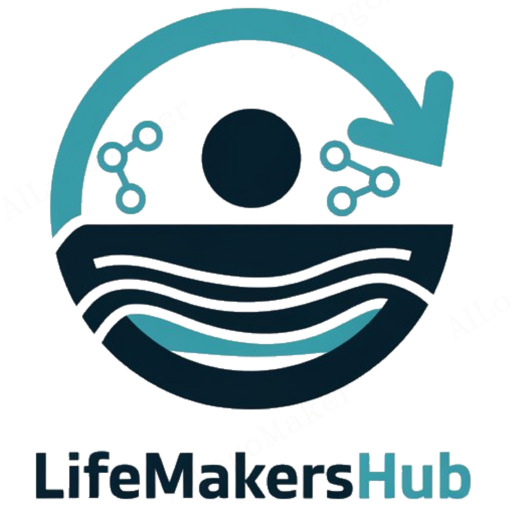Transform Your Potential: Discover the Power of Skills Development
In today’s fast-paced world, unlocking your full potential often hinges on one key factor: continuous growth. Whether you’re aiming for personal fulfillment or professional success, honing your abilities can open doors to new opportunities. Recent studies show that 64% of learning and development professionals prioritize reskilling their employees, highlighting the importance of staying adaptable in a competitive landscape1.
From technical expertise like social media optimization to essential human traits such as communication and critical thinking, there’s always room to grow. Businesses that invest in employee growth see higher engagement and loyalty, proving that development is a win-win for both individuals and organizations2.
This article will guide you through actionable insights to help you seize new career opportunities. Let’s explore how targeted reskilling, upskilling, and cross-skilling can transform your journey.
Key Takeaways
- Continuous growth is essential for personal and professional success.
- Reskilling is a top priority for 64% of learning and development professionals1.
- Investing in growth boosts employee engagement and loyalty2.
- Technical and human skills are both critical for career advancement.
- Targeted learning strategies can unlock new opportunities.
Introduction: The Importance of Skills Development
In an era of rapid change, continuous improvement is no longer optional—it’s essential. The job market is evolving faster than ever, and staying relevant requires a commitment to lifelong learning. 64% of learning and development professionals plan to reskill their current employees, emphasizing the need for adaptability1.
Continuous training is now a cornerstone of career stability. Employees who embrace learning opportunities are better equipped to handle new challenges and advance in their roles. Businesses that invest in employee growth see higher engagement and loyalty, making it a win-win for both individuals and organizations2.
Why Skills Matter in Today’s Career Landscape
The dynamic nature of the job market means that adaptability is key. Improved management and leadership abilities not only benefit the individual but also enhance team performance and organizational success. For example, employees with strong communication and critical thinking skills are more likely to excel in their roles.
How Skill Growth Impacts Personal and Professional Success
Personal success is deeply tied to ongoing learning. Here’s how consistent training initiatives can transform your career:
- Enhanced job performance: Employees with updated skill sets are more productive and efficient.
- Career stability: Learning new abilities ensures you remain competitive in your field.
- Leadership opportunities: Improved management skills open doors to higher positions.
This section lays the groundwork for understanding the vast opportunities that come with continuous growth. By investing in learning, you’re not just adapting to change—you’re thriving in it.
Understanding the Types of Skill Development
To stay competitive in today’s job market, understanding the types of learning strategies is crucial. Whether you’re looking to advance in your current role or pivot to a new field, knowing the differences between upskilling, cross-skilling, and reskilling can guide your path. 64% of learning and development professionals plan to reskill their current employees, highlighting the importance of these approaches1.
Upskilling, Cross-skilling, and Reskilling Explained
Upskilling focuses on enhancing your current abilities. For example, a marketer might learn advanced social media strategies to stay ahead. Cross-skilling involves gaining expertise in a related area, like a software developer learning project management. Reskilling is about acquiring a completely new skill set, such as transitioning from finance to data analysis.
Examples of Skill Development in the Workplace
Many companies integrate training programs to address skill gaps. For instance, LinkedIn Learning offers courses in leadership and technical certifications. Hootsuite provides certifications for social media mastery, which is increasingly in demand1. These programs help employees stay relevant and productive.
Benefits Across Different Career Stages
Whether you’re just starting out or a seasoned professional, continuous learning is essential. Here’s how these strategies benefit you:
- Early Career: Build a strong foundation with upskilling and cross-skilling.
- Mid-Career: Use reskilling to pivot into leadership roles or new industries.
- Late Career: Stay competitive by mastering emerging trends.
| Type | Focus | Example |
|---|---|---|
| Upskilling | Enhancing current abilities | Advanced social media strategies |
| Cross-skilling | Gaining related expertise | Software developer learning project management |
| Reskilling | Acquiring a new skill set | Transitioning from finance to data analysis |
Understanding these distinctions helps you choose the right program for your career goals. By addressing skill gaps, you can unlock new opportunities and achieve long-term success.
Setting Your Career Goals and Identifying Skills Gaps
Setting clear career goals is the first step toward achieving meaningful professional growth. Without a roadmap, it’s easy to lose focus or feel stuck in your work. By defining your objectives, you can create a plan that aligns with your ambitions and drives you forward.
Defining Your Professional Objectives
Start by asking yourself where you want to be in the next five years. Do you aim for a leadership role, a career change, or mastering a new area? Clear goals provide direction and motivation, helping you prioritize your efforts. For example, if you want to transition into a new field, reskilling might be your focus1.
Break your goals into actionable steps. Whether it’s improving communication or mastering time management, each step brings you closer to your vision. Remember, goals should be specific, measurable, and achievable.
Recognizing and Addressing Skills Gaps
Once your goals are set, identify the gaps in your abilities. A skill gap assessment can reveal areas where you need improvement. For instance, if you’re aiming for a leadership role, you might need to enhance your team management or decision-making skills2.
Here are some methods to pinpoint gaps:
- Self-assessment: Reflect on your strengths and weaknesses.
- Mentorship feedback: Seek advice from experienced professionals.
- Formal evaluations: Use tools like performance reviews or online assessments.
Regularly reviewing your progress ensures you stay on track. Addressing gaps early can lead to meaningful change in your career trajectory.
Time management is crucial when balancing work and learning. Dedicate specific hours each week to focus on your goals. By integrating these strategies into your routine, you can achieve consistent growth and stay competitive in your field.
Embracing Both Human and Technical Skills

Balancing soft and hard skills is the key to thriving in modern careers. Employers today seek professionals who can communicate effectively while mastering technical tasks. This combination not only solves workplace challenges but also drives productivity and innovation.
Developing Essential Human Skills
Communication is at the heart of every successful team. Whether you’re leading a project or collaborating with colleagues, clear and concise dialogue ensures everyone is on the same page. Adaptability is another critical soft skill, allowing you to navigate change and stay resilient in dynamic environments.
Teamwork is equally important. When individuals work together effectively, they achieve more than they could alone. These human skills foster a positive workplace culture and enhance overall performance2.
Mastering Technical Skills for Career Success
Technical expertise is equally vital in today’s job market. Proficiency in coding languages like Python or JavaScript can open doors to high-demand roles. Similarly, mastering data analysis tools helps you make informed decisions and solve complex problems1.
Social media analytics is another sought-after technical skill. Platforms like Hootsuite offer certifications to help you stay ahead in this competitive field. By combining these hard skills with strong communication, you become a well-rounded professional.
Here’s how to evaluate and improve both skill sets:
- Self-assessment: Identify areas where you excel and where you need improvement.
- Training programs: Enroll in courses to enhance your technical and soft skills.
- Practice daily: Apply what you learn in real-world scenarios to build confidence.
By embracing both human and technical skills, you position yourself for long-term success. Continuous improvement ensures you remain competitive in the evolving job market.
Building Your Network for Professional Growth
Building meaningful connections can be the cornerstone of your career success. A strong professional network not only helps you stay informed about industry trends but also provides practical advice from experienced professionals. 76% of people believe knowing the right people is essential to career advancement3.
Leveraging Mentorship and Peer Feedback
Mentorship is a powerful way to gain insights and guidance. A mentor can help you navigate challenges and identify opportunities you might not see on your own. 67% of professionals have met a mentor through networking activities4.
Peer feedback is equally valuable. Regularly seeking input from colleagues can help you refine your approach and grow in your role. Taking the initiative to ask for feedback shows your commitment to improvement.
Expanding Your Professional Connections
Expanding your network requires effort and strategy. Attend industry events, join professional communities, and engage on platforms like LinkedIn. 6.3 million people attended virtual events on LinkedIn during 2020, highlighting the demand for networking opportunities3.
Here are some actionable steps to grow your connections:
- Reach out to industry experts: A simple message can lead to valuable advice or collaboration.
- Join professional groups: These communities provide access to resources and like-minded individuals.
- Volunteer or participate in projects: This can help you build authentic relationships while contributing to your field.
“Your network is your net worth. Invest in it wisely.”
By actively building and nurturing your network, you create opportunities to learn new strategies and gain insights from diverse perspectives. 85% of jobs are filled through networking, making it a critical component of career growth4.
Exploring Learning Platforms and Training Programs
The digital age has revolutionized how we learn, offering endless opportunities to grow professionally. From online courses to in-person workshops, there’s a wealth of resources designed to meet diverse learning needs. Over 350 top companies and universities provide access to world-class content, ensuring you can find programs that align with your goals1.
Online Courses, Workshops, and Formal Education
Online platforms like Coursera and LinkedIn Learning have transformed the way we acquire knowledge. These platforms offer courses in leadership, technical certifications, and more, making it easier to stay competitive. 64% of learning and development professionals prioritize reskilling employees, highlighting the demand for accessible training1.
In-person workshops also play a vital role. They provide hands-on experience and networking opportunities, which are invaluable for career growth. Whether you prefer structured programs or flexible learning, there’s an option for everyone.
Utilizing Self-Directed Learning Resources
Self-directed learning allows you to take control of your education. Platforms like Hootsuite offer certifications for in-demand areas like social media analytics, helping you stay ahead in your field1. This approach is ideal for those who thrive in independent study environments.
Businesses are also leveraging these resources to boost employee performance. Companies that invest in training see higher engagement and retention rates, proving the value of continuous learning2. By exploring these tools, you can enhance your expertise and advance your career.
Take the first step today—find a program that fits your learning style and start your journey toward professional growth.
Practical Tips for Regular Practice
Consistent practice is the bridge between learning and mastery, transforming knowledge into real-world expertise. Regular, hands-on practice solidifies new abilities, making the learning process more tangible and effective1. Whether you’re refining technical expertise or honing soft skills, daily application ensures lasting proficiency.
Integrating Daily Practice into Your Routine
Finding time for practice can be challenging, especially with a busy schedule. Start by dedicating small, consistent blocks of time—even 15 minutes a day can make a difference. Prioritize practice like any other essential task, and you’ll see steady progress over time.
Here are some actionable strategies to incorporate practice into your day:
- Set specific goals: Define what you want to achieve in each session to stay focused.
- Use downtime wisely: Practice during breaks or commutes to maximize efficiency.
- Create a routine: Schedule practice at the same time daily to build consistency.
Overcoming Common Challenges
Every worker faces obstacles when trying to improve. One common problem is losing motivation when progress feels slow. Tracking your growth can help you stay motivated and see how far you’ve come2. Use tools like journals or apps to monitor your achievements and identify areas for improvement.
Another challenge is balancing practice with other responsibilities. Break tasks into smaller steps to avoid feeling overwhelmed. Remember, consistency is more important than intensity.
Ensuring Retention and Progress
Retention is key to turning practice into expertise. Regularly revisit what you’ve learned to reinforce it. Feedback from peers or mentors can also accelerate your growth, providing insights you might miss on your own1.
Here’s how to ensure sustained improvement:
- Review regularly: Revisit past lessons to keep them fresh in your mind.
- Seek feedback: Constructive criticism helps you refine your approach.
- Celebrate milestones: Acknowledge your progress to stay motivated.
“Practice isn’t the thing you do once you’re good. It’s the thing you do that makes you good.”
By committing to regular practice, you’ll transform theory into real-world expertise. Every worker has the potential to excel—consistent effort is the key to unlocking it.
Effective Strategies for Skills Development in Your Career

Adapting to the ever-changing professional landscape requires a clear and actionable strategy. Whether you’re aiming to advance in your current role or pivot to a new field, a well-planned approach ensures you stay competitive. 64% of learning and development professionals plan to reskill their current employees, highlighting the importance of staying adaptable1.
Adapting to Industry Changes and Feedback
Industries evolve rapidly, and staying relevant means embracing change. Regularly seek feedback from peers, mentors, and industry trends to identify areas for improvement. Constructive criticism helps refine your approach and ensures you’re on the right track.
Here’s how to integrate feedback into your strategy:
- Stay informed: Follow industry news and updates to anticipate shifts.
- Seek mentorship: Experienced professionals can provide valuable insights.
- Act on feedback: Use it to adjust your learning and career plans.
Continuous Improvement Through Certification and Training
Certifications and training programs validate your expertise and keep you ahead of the curve. Platforms like LinkedIn Learning and Hootsuite offer courses in high-demand areas, making it easier to learn new skill sets1.
Here’s why certifications matter:
- Credibility: They demonstrate your commitment to growth.
- Competitive edge: Employers prioritize candidates with verified expertise.
- Skill enhancement: Advanced training helps you master hard skills and soft skills alike.
Gaining real-life experience is equally crucial. Apply what you learn in practical scenarios to solidify your knowledge. Every project or task is an opportunity to refine your strategy and grow.
“The only way to stay ahead is to keep learning and adapting.”
By combining certifications, feedback, and hands-on experience, you build a robust professional profile. This proactive approach lays the groundwork for long-term career success.
Navigating Career Advancement Through Skill Enhancement
Advancing in your career requires more than just experience—it demands continuous improvement. By refining your abilities, you can excel in your current role and prepare for new opportunities within your company. This section explores how enhanced expertise translates into measurable career growth.
Translating Skills into Job Performance
Well-honed abilities directly impact your job performance. For example, mastering communication or technical tools can boost productivity and efficiency. 64% of learning and development professionals plan to reskill their current employees, emphasizing the importance of staying adaptable1.
Aligning your expertise with your role ensures you meet company expectations. Whether it’s leadership or technical proficiency, targeted improvement leads to tangible results. Every task becomes an opportunity to showcase your growth.
Leveraging Skill Development for Career Progression
Skill enhancement isn’t just about excelling in your current role—it’s about preparing for the next one. Many professionals use certifications or training programs to pivot into leadership positions or new industries1.
Here’s how to leverage your growth for career progression:
- Showcase your expertise: Highlight new abilities during performance reviews or internal job applications.
- Align with company goals: Understand your company’s priorities and tailor your development accordingly.
- Seek feedback: Use insights from mentors or peers to refine your approach.
Real-world examples show how skill enhancement leads to promotions. For instance, a marketing professional who mastered data analytics secured a leadership role within their company. 60% of workers wanted to change their career in 2020, highlighting the need for continuous growth2.
| Strategy | Impact |
|---|---|
| Certifications | Validates expertise and boosts credibility |
| Performance Reviews | Showcases growth and readiness for new roles |
| Mentorship | Provides guidance for career progression |
“Your career is a journey—every skill you develop is a step forward.”
By viewing every learning initiative as an opportunity to redefine your professional role, you position yourself for long-term success. Companies that focus on employee development generate higher levels of engagement and loyalty, making it a win-win for everyone2.
Conclusion
Your career journey is a continuous path of growth and adaptation. By combining technical expertise with essential human abilities, you can unlock new opportunities and achieve long-term success. Certifications and training programs are powerful tools to stay ahead in today’s competitive landscape1.
Every small step you take opens doors to new career areas. Whether it’s mastering a new tool or improving communication, these efforts add up over time. Today’s challenges are tomorrow’s stepping stones, and embracing them ensures you remain adaptable and resilient.
Start implementing the practical tips and strategies discussed in this article. View your professional journey as a lifelong learning experience that evolves with each challenge. Businesses that focus on employee growth see higher engagement and loyalty, making it a win-win for everyone2.
Take the first step today—your future self will thank you.







